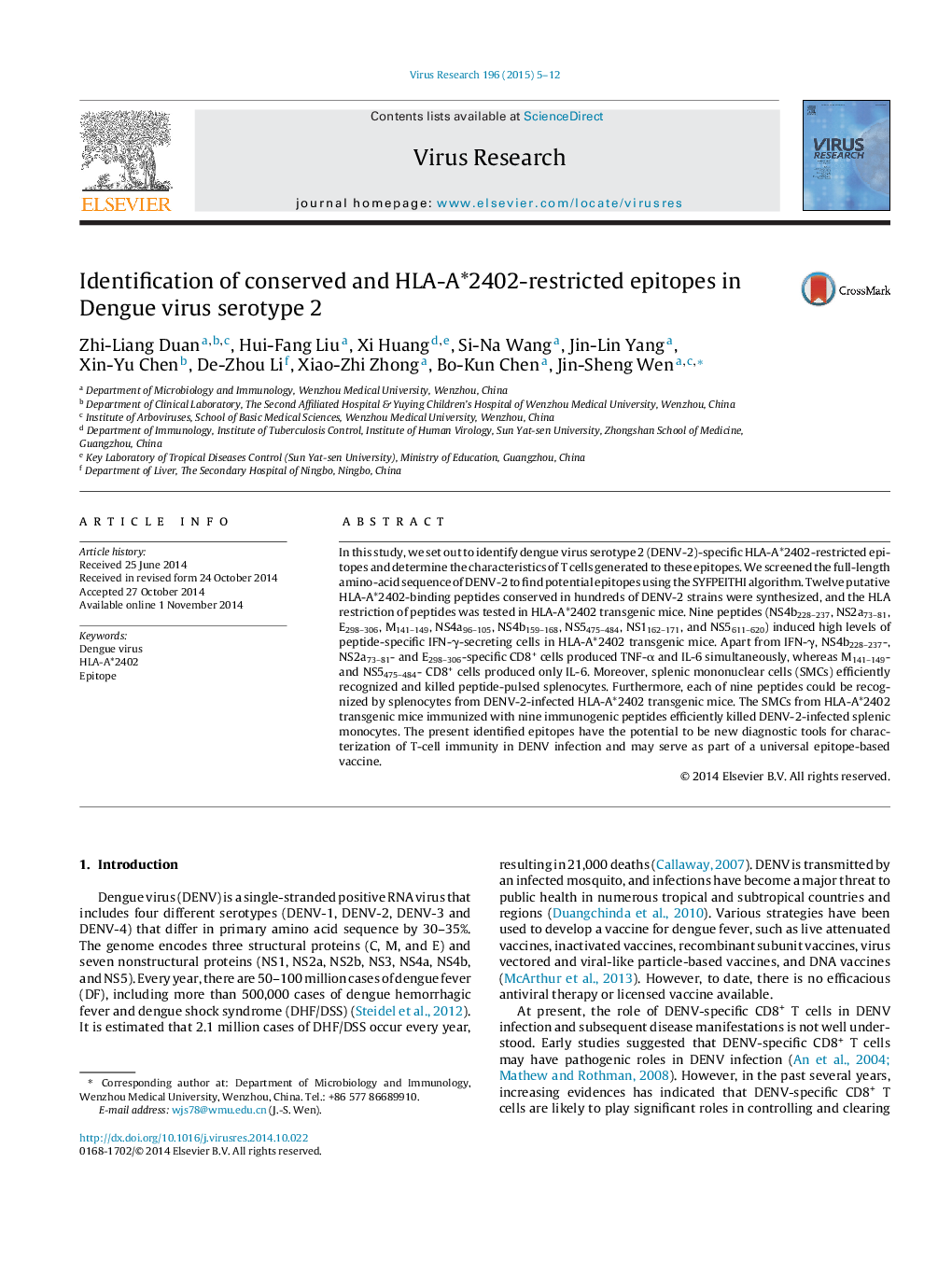| Article ID | Journal | Published Year | Pages | File Type |
|---|---|---|---|---|
| 6142259 | Virus Research | 2015 | 8 Pages |
â¢First, we identified nine HLA-A*2402-restricted epitopes in dengue virus serotype 2.â¢Second, peptides was recognized by cells of dengue virus-infected HLA-A*2402 transgenic mice.â¢Third, peptide-specifc T cells could kill dengue virus-infected splenic monocytes.
In this study, we set out to identify dengue virus serotype 2 (DENV-2)-specific HLA-A*2402-restricted epitopes and determine the characteristics of T cells generated to these epitopes. We screened the full-length amino-acid sequence of DENV-2 to find potential epitopes using the SYFPEITHI algorithm. Twelve putative HLA-A*2402-binding peptides conserved in hundreds of DENV-2 strains were synthesized, and the HLA restriction of peptides was tested in HLA-A*2402 transgenic mice. Nine peptides (NS4b228-237, NS2a73-81, E298-306, M141-149, NS4a96-105, NS4b159-168, NS5475-484, NS1162-171, and NS5611-620) induced high levels of peptide-specific IFN-γ-secreting cells in HLA-A*2402 transgenic mice. Apart from IFN-γ, NS4b228-237-, NS2a73-81- and E298-306-specific CD8+ cells produced TNF-α and IL-6 simultaneously, whereas M141-149- and NS5475-484- CD8+ cells produced only IL-6. Moreover, splenic mononuclear cells (SMCs) efficiently recognized and killed peptide-pulsed splenocytes. Furthermore, each of nine peptides could be recognized by splenocytes from DENV-2-infected HLA-A*2402 transgenic mice. The SMCs from HLA-A*2402 transgenic mice immunized with nine immunogenic peptides efficiently killed DENV-2-infected splenic monocytes. The present identified epitopes have the potential to be new diagnostic tools for characterization of T-cell immunity in DENV infection and may serve as part of a universal epitope-based vaccine.
